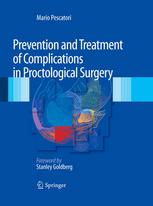

Most ebook files are in PDF format, so you can easily read them using various software such as Foxit Reader or directly on the Google Chrome browser.
Some ebook files are released by publishers in other formats such as .awz, .mobi, .epub, .fb2, etc. You may need to install specific software to read these formats on mobile/PC, such as Calibre.
Please read the tutorial at this link: https://ebookbell.com/faq
We offer FREE conversion to the popular formats you request; however, this may take some time. Therefore, right after payment, please email us, and we will try to provide the service as quickly as possible.
For some exceptional file formats or broken links (if any), please refrain from opening any disputes. Instead, email us first, and we will try to assist within a maximum of 6 hours.
EbookBell Team

4.8
64 reviewsThe volume is authored by a colorectal surgeon with long-standing clinical and scientific experience and is devoted to the management of complications following surgery of the anorectum and the pelvic floor. It is aimed not only at general surgeons, perineologists and, of course, proctologists, but also at gastroenterologists, endoscopists, radiologists and physiotherapists, i.e. those who may be involved in both diagnosis and cure whenever an adverse event, either unpredictable or potentially preventable, causes an intra- or postoperative, early or late, mild or life-threatening complication. Severe bleeding, dehiscence, perforation, anorectal stricture, fecal incontinence, and even caval vein thrombosis, fatal Fournier gangrene and pneumomediastinum may occur after anal surgery. The incidence, pathogenesis prevention and treatment of such events are discussed in detail in 10 chapters with 30 tables, 200 illustrations and more than 1000 references. Both conventional procedures and recent innovations are reported. “Unforgettable clinical cases (complications with litigation)” and “Tips and Tricks” are sections increasing the appeal of this book. The approach is “evidence-based” and holistic, focusing on anorectal problems while taking into consideration whole body-mental unity—showing, for example, that a non-healing perineal wound may be due to hypo-pituitarism, and failure after a re-intervention may be related to psychological distress.